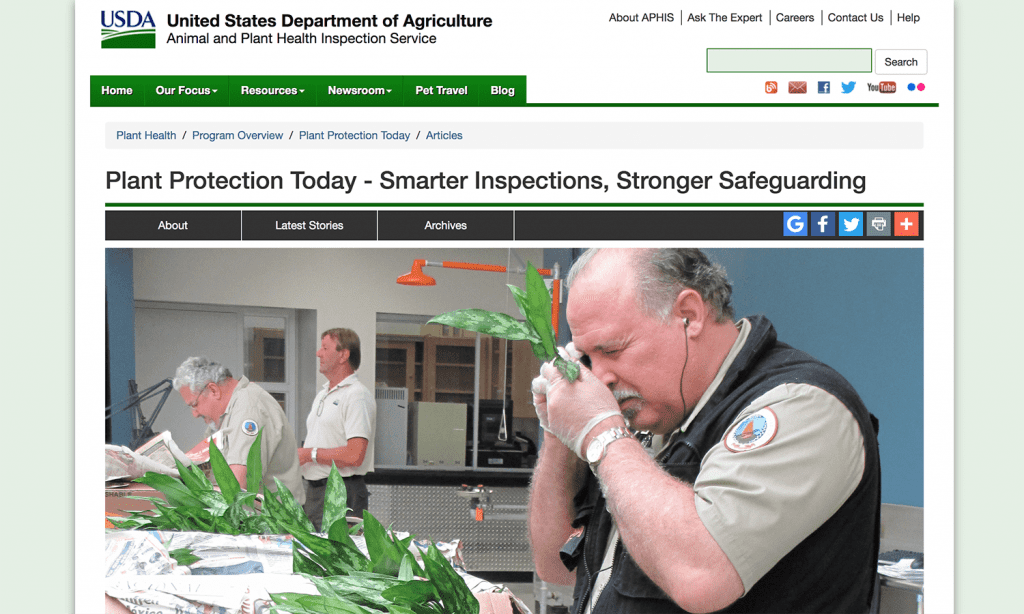
The US Department of Agriculture’s Animal and Plant Health Inspection Service) recently announced a change in how it inspects imported plants-for-planting material. SAF members hailed the announcement as a common-sense shift.
The US Department of Agriculture’s Animal and Plant Health Inspection Service (APHIS) recently announced a change in how it inspects imported plants-for-planting material, which some Society of American Florists members have hailed “a wise move.”
For decades, APHIS had evaluated a subset (about 2 percent) of the plants-for-planting material (cuttings, tissue culture, and bareroot) offered for import for insect pests, diseases and weed seeds. Some in the floral industry, including SAF, have argued that not all material should be treated the same and that some forms (i.e., cuttings) present an inherently lower risk due to how they are produced and existing safeguards.
After an intensive data-gathering effort and with input from industry groups including the Society of American Florists, USDA has found that a better indicator of risk is the plant form (e.g. cuttings) combined with country of origin; in the past the agency identified risks based on plant genus (e.g. petunias) and country. Initial implementation will likely provide low-risk (low intensity) inspections for tissue cultured material with adjustments being made depending on the country of origin. Bareroot material will likely receive the greatest scrutiny and have more boxes sampled per-shipment than in previous years.
Herb J. Vander Ende of Burnaby Lake Greenhouses Ltd. in Surrey, British Columbia, and a member of SAF’s Growers Counciil called the news “logical and practical.”
“It should reduce delays in clearance of product,” he said, adding that fewer delays mean less losses in transit and propagation, which is good for bottom line. “There’s nothing more frustrating to a grower than having your product delayed when you’re dealing with a tight schedule, especially considering that product is likely not being held at ideal temperatures and could be inadvertently damaged in the process.”
Marvin Miller, Ph.D., AAF, of Ball Horticultural Company in West Chicago, Illinois, another member of SAF’s Growers Council, said the change will put APHIS’ resources to best use, allowing the agency to more closely examine shipments of greater risk, said
“It makes very good sense,” said Miller, a member of SAF’s Growers Council. “During the shipping season, a lot of cuttings are imported from Latin America, Africa and Israel destined for U.S. greenhouses, with many of the shipments occurring week after week, with the same species being imported from the same operations.”
It’s important to note that, for now, APHIS will not consider specific operations when considering risk — the agency can’t go to that level of detail, said Shawn McBurney, SAF’s senior director of government relations.
“But eventually that could be the standard, where producers with a cleaner record are inspected by a further reduced intensity,” he said.
That’s a scenario Vander Ende supports.
“It would be even better if they could take it one step further and maintain a database by country that lists the shipping farms,” Vander Ende said. “Over time it will be clear that there are shippers in any given country who have less issues and therefore should require less attention/inspection than others.”
Katie Hendrick Vincent is the senior contributing editor for the Society of American Florists.

